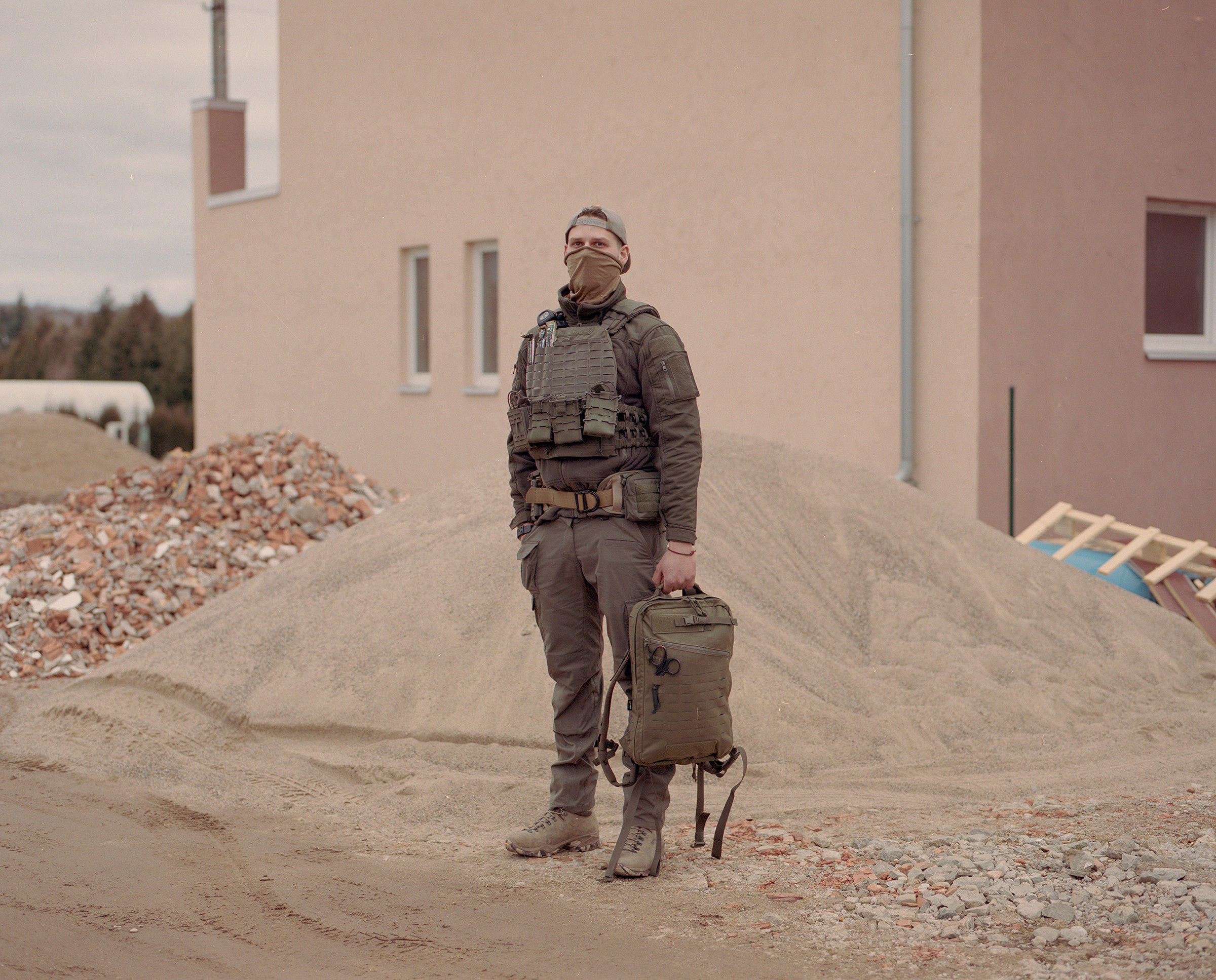On a chilly Thursday morning, Povilas Limontas stood outside the gates of the Ukrainian embassy in Vilnius, waiting for someone to notice him. In his knapsack were a handful of documents and his old beret: proof that he had once served in the Lithuanian military. It took about 15 minutes, but finally, someone from inside the embassy came out, and opened the gate. Half an hour later, the 24-year-old bartender from Kaunas, Lithuania had a document with a QR code and instructions on where along the Polish border he should show up. He was registered to go fight against Russian troops in their bloody war on Ukraine. “I have the fitness, the youth, and the training—it would be selfish of me not to use it,” he says. “If rockets are wasted on me instead of some children, I’ll take that deal anytime.”
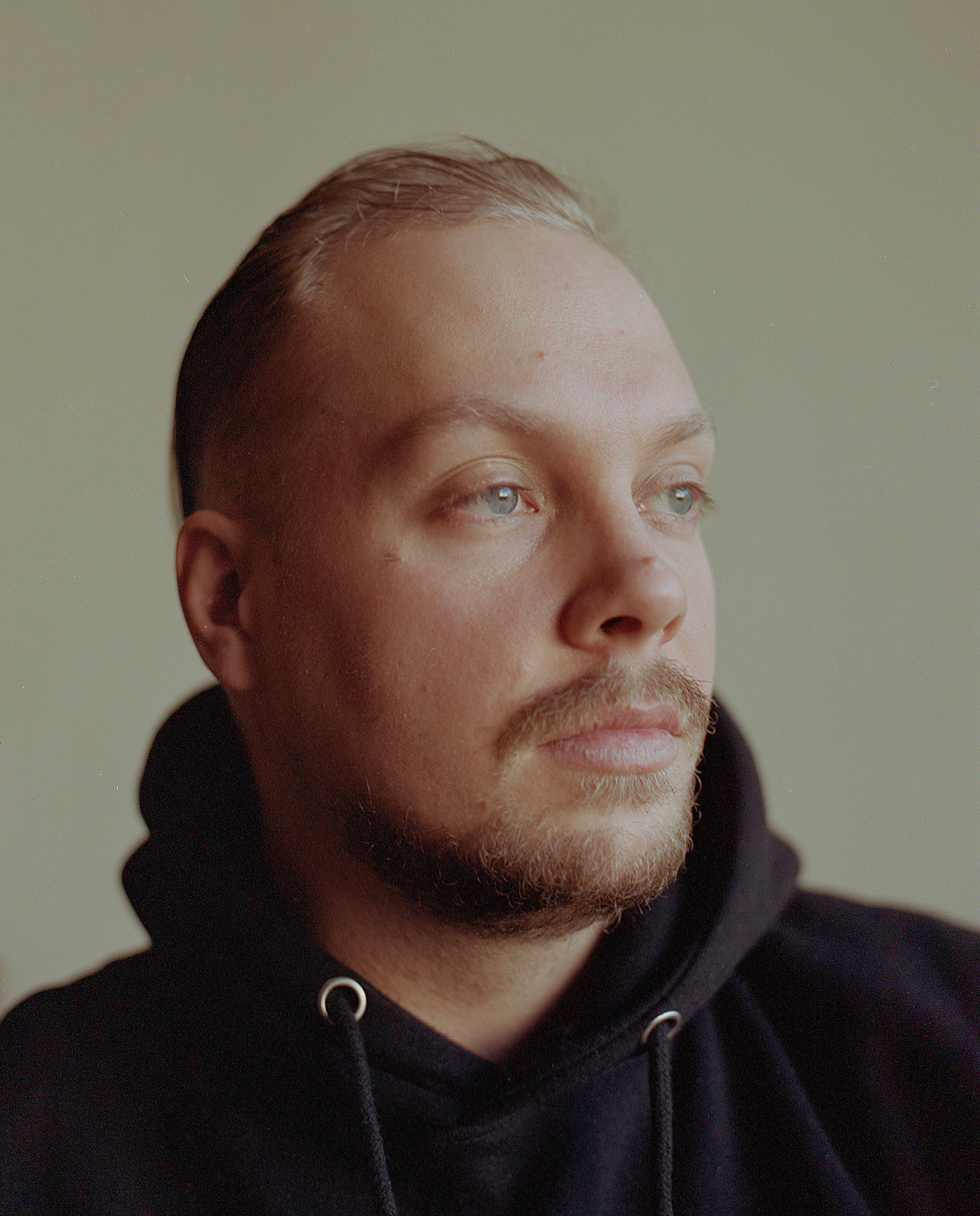
In the week since President Volodymr Zelensky announced the creation of an ‘International Legion’ to defend Ukraine, 20,000 people from 52 countries have volunteered to fight in Ukraine, the country’s, Foreign Minister, Dmytro Kuleba said on television Sunday night. Those numbers do not include the many health care professionals who are also on their way to the country, nor the massive mobilization of volunteers around the globe who are working to get military equipment, medical supplies and other necessities to Ukraine. Motivating all of those volunteers, some of whom were already fighting Russian troops as of March 7, is a general desire to help ease Ukrainian suffering. But in the case of those who, like Limontas, come from places that were themselves once subject to Soviet occupation, there is an added inspiration: they are convinced that if Ukraine falls, their country will be next.
Fearful of escalating the conflict—especially since Putin has threatened to use the nuclear weapons at his disposal—neither NATO as a whole nor any individual country has sent troops to defend Ukraine. But some worry that even volunteers will be seen as a provocatio—a concern only heightened after a recent discovery of purported Russian surveillance of Ukrainian embassy phone lines that volunteers use to register.
Some countries, like Belgium, have tried to dissuade their veterans from going. Others are debating its legality—a debate that was sparked in the U.K., for example, after Foreign Secretary Liz Truss encouraged people to enlist.
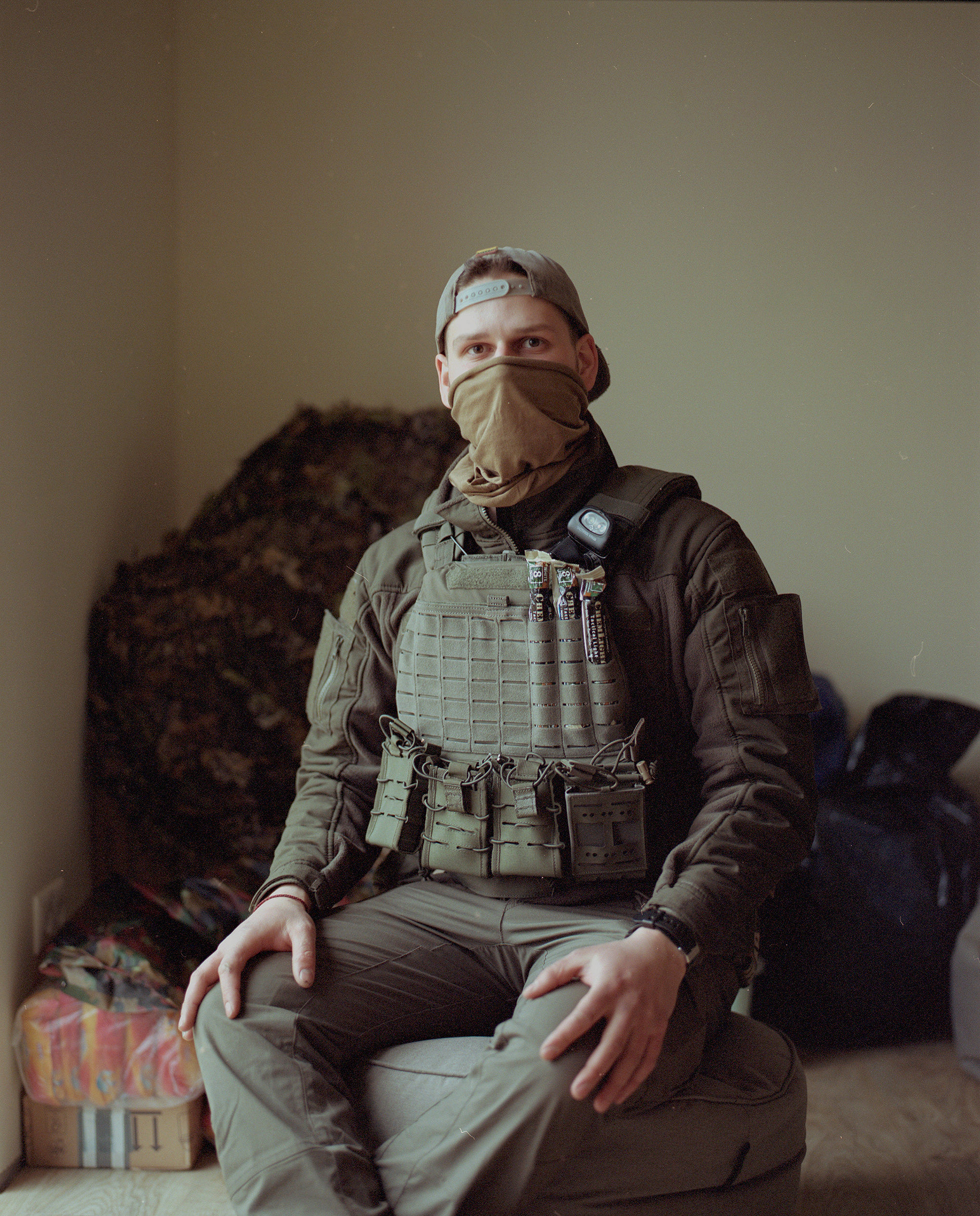
Yet other countries have allowed and even encouraged their citizens to volunteer on their own. Danish Prime Minister Mette Frederiksen was the first to do so when, on Feb. 27, she noted during a press conference that volunteering was “a choice anyone could make.” That was followed by a more ringing endorsement from the Latvian government the next day. “Our citizens who want to support Ukraine and volunteer to serve there to defend Ukraine’s independence and our common security must be able to do so,” said Latvian MP Juris Rancanis, as he introduced a bill—later approved—that allows Latvians to take up arms for Ukraine.
There is precedent for Ukraine’s International legion. After the Nationalist forces of Francisco Franco staged a coup against the democratically elected government of Spain in 1936—and gained support from both Mussolini’s Italy and Hitler’s Germany in the process—tens of thousands of volunteers from around the world joined the International Brigades to defend the Republic. The suffering of the Spanish people, including the indiscriminate bombing of civilian targets, motivated many of the enlistments, but so too did ideology: many volunteers saw themselves as defending democracy against fascism.
Read More: What It’s Like for Ukrainian Journalists Reporting on the War in Their Country
Nearly a century later, a humanitarian impulse, more than an ideology, seems to be guiding many of those going to Ukraine. A 48-year-old driver told Politico that he had been inspired to register at the Ukrainian embassy in Paris by Zelensky’s call for foreign fighters. “I don’t really have any animosity against the Russians,” he said. “I’m going there to defend human beings, and because I have an 8-year-old child.” Luis Castaño, a 46-year-old repairman who enlisted at the Ukrainian consulate in Barcelona told El País he was going because “You have to take your heart in your hand and help people who need it.” And as he prepared to board the plane for the first leg of the journey to Ukraine, Hector, a former US Marine who served two tours in Iraq, told the New York Times, “Sanctions can help, but sanctions can’t help right now. I can help right now.”
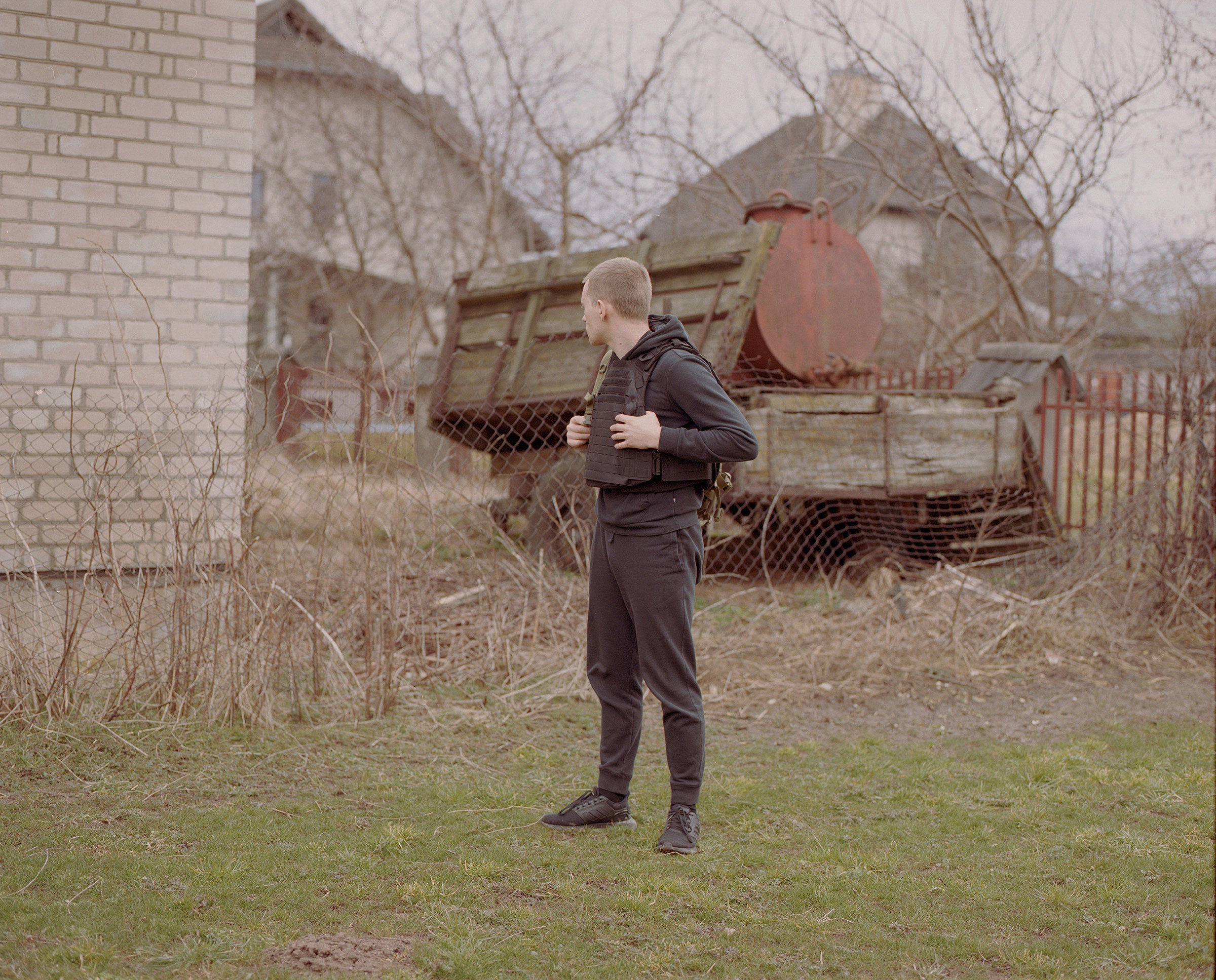
A website, Fightforua, provides instructions to those who wish to enlist from as far away as Iraq, Malaysia, and Argentina. Volunteers, who must have proven experience in the military or law enforcement, are required to apply for the Legion at the Ukrainian embassy in their country of residence, and are responsible for making their own way to the Poland-Ukraine border. There, they will sign a contract and be assigned to a unit. Multiple reports suggest that some volunteers, however, are simply crossing the Ukrainian border on their own, and hoping to be put to use.
Read More: The Fight to Save Lives in Ukraine’s Largest Children’s Hospital
The risks are significant. Ukraine has not released the number of its soldiers who have been killed or injured, but the U.N. says there have already been more than 1,000 civilian casualties. Meanwhile Russia has said that it considers foreign soldiers “mercenaries” who would therefore not be entitled to the protections guaranteed by Geneva Convention for prisoners of war.
Even before they leave home, there may well be risks involved. According to Tom Niclas Tornedal, who has set up a Facebook group to help Norwegian volunteer soldiers and emergency aid workers, when one potential fighter called the Ukrainian embassy in Oslo to get information about enlisting, he told TIME that he was unnerved to receive a phone call soon after from someone purportedly from the embassy unable to speak English or Norwegian and inquiring further about his plans. Norwegian police later confirmed that Russians had hacked the Ukrainian embassy’s phones.
“I reported it to establish whether there was some Russian surveillance on incoming calls and communication from volunteers,” says Tornedal, an IT specialist in Tromsø. “It stood out as a possible security risk. Not necessarily as something that would happen within the borders of the European Union or Norway. But let’s say several members agreed on a destination to assemble for military engagements. It could be quite dangerous.”
The Ukrainian embassy in Norway estimates that 300 Norwegians have already volunteered to fight, while Torndal’s Facebook group counts, he says, around 650 members. Those who go, he says, are motivated primarily by a sense of injustice. “The aggression, the murder of innocent people—nobody feels that the Ukrainians have done anything that justifies the invasion.”
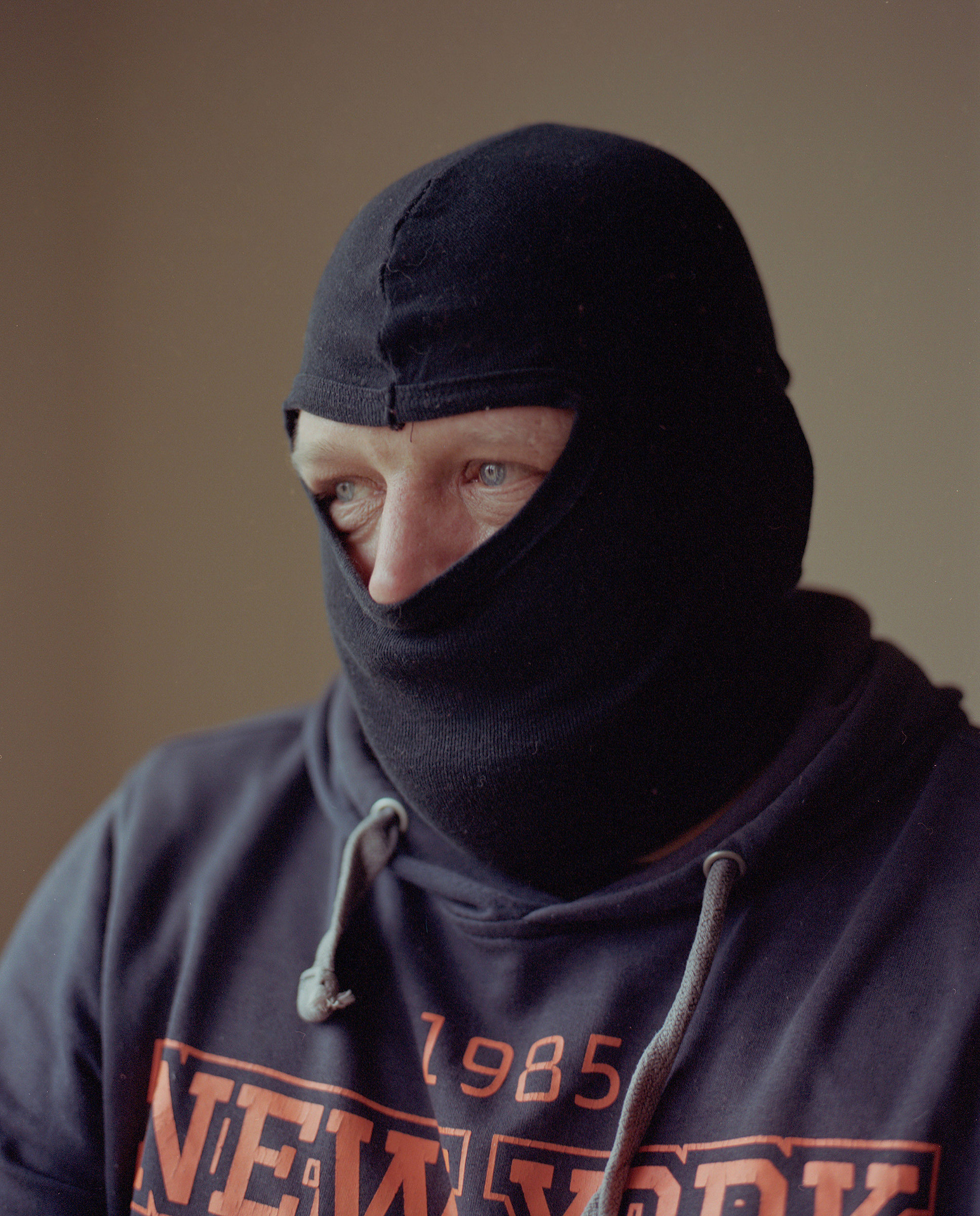
Outrage at the violence, and a desire to help may be common motivations the world over. But in some countries—namely those who for reasons of history and geography feel especially vulnerable—those motivations are joined by an additional consideration. At the Ukrainian embassy in Vilnius, defense attaché Serhii Verkhovod, puts it bluntly. “The response is especially high here because the Lithuanian people understand,” he says. “They feel the threat.”
That explanation helps explain a massive nationwide effort to raise funds and supplies for Ukraine. In a country of just 2.8 million, the NGO Blue Yellow, founded by Swedish expatriate Jonas Ohman during the Crimea invasion to supply military equipment to Ukraine, has raised 13 million euros in the two weeks since the invasion. On a typically frenzied night last week, Ohman and his small staff were preparing to deliver 10,000 helmets and 10,000 bullet proof vests to the Ukrainian border, along with a convoy of 25 jeeps and SUVs.
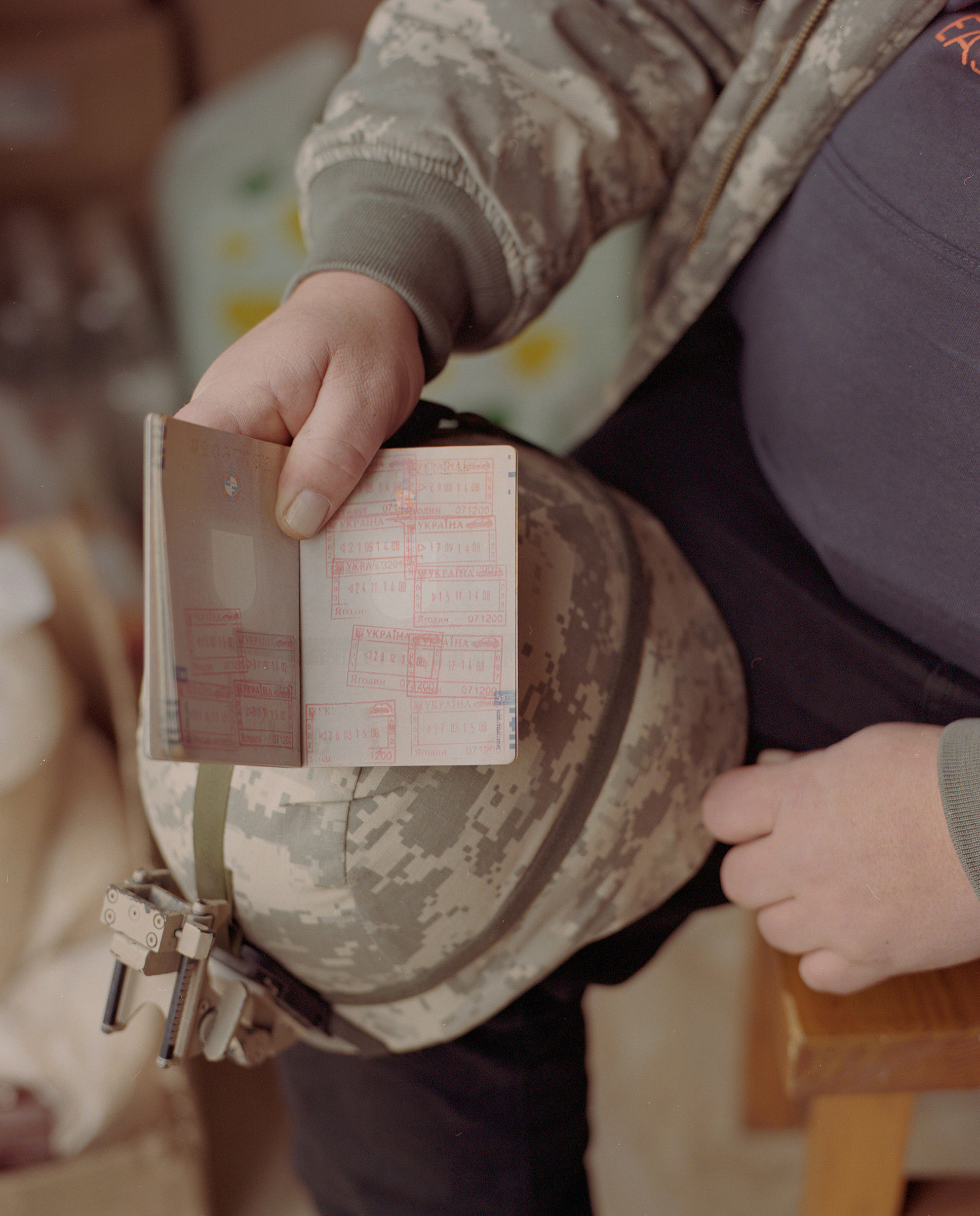
Health care professionals are also responding in droves. When the Lithuanian Ministry of Health put out a call for volunteers to go, 360 people applied within a couple of days; the ministry is now preparing to send 24 doctors and nurses who will be assigned to hospitals close to the Polish border. “I think people here sense the danger,” says Marius Ciurlionis, a ministry adviser. “And they think, ‘if it happens here, I hope people would come and help us too.”
Read More: ‘It’s Our Duty to Help.’ Eastern Europe Opens Its Doors and Hearts to People Fleeing Ukraine
Rokas Tamosauskas is one of the physicians going. A Lithuanian anesthesiologist and consultant who works for Cambridge University Hospitals in the U.K., he was on the train to the airport last Friday when he saw the Ministry’s call for medical volunteers on social media. Within moments, he had decided to apply. “It was quite an easy decision,” he says. “Because I have this deep sense that it is not just Ukraine that is being attacked. It’s Lithuania that is also under attack. It’s Europe that is under attack.”
History, he says, also helps explain why people in the region might feel greater urgency about coming to Ukraine’s aid. “Lithuanians—and Poles and Czechs—perhaps because we have a deeper understanding of who the Russians are and what kind of imperialistic thinking is behind them, we empathize more easily. And we perhaps recognize the danger a tad sooner.”
According to attaché Verkhovod, about 200 Lithuanians have registered to fight at the embassy. Helping at least some of them figure out how to get there is the organization Luksu Vyrai. Based in Kaunas, it was— until about two weeks ago—a men’s group that hosted camps for fathers and sons. But with the Russian invasion, it suddenly shifted focus. The group’s founder, Gintautas Mauricas, served 24 years in the military as a small arms instructor and public affairs officer, among other roles, and he saw a need for an organization that could offer instruction and coordination for those looking to fight in Ukraine.
For him, the motivations are partly personal. I was paid by taxpayers to learn how to fight,” Mauricas says, “But in 20+ years, I never used those skills. Even in Afghanistan, I was in a safe environment, the Special Operations command center, in the green zone. So now, I am paying back the taxes that people paid me.”
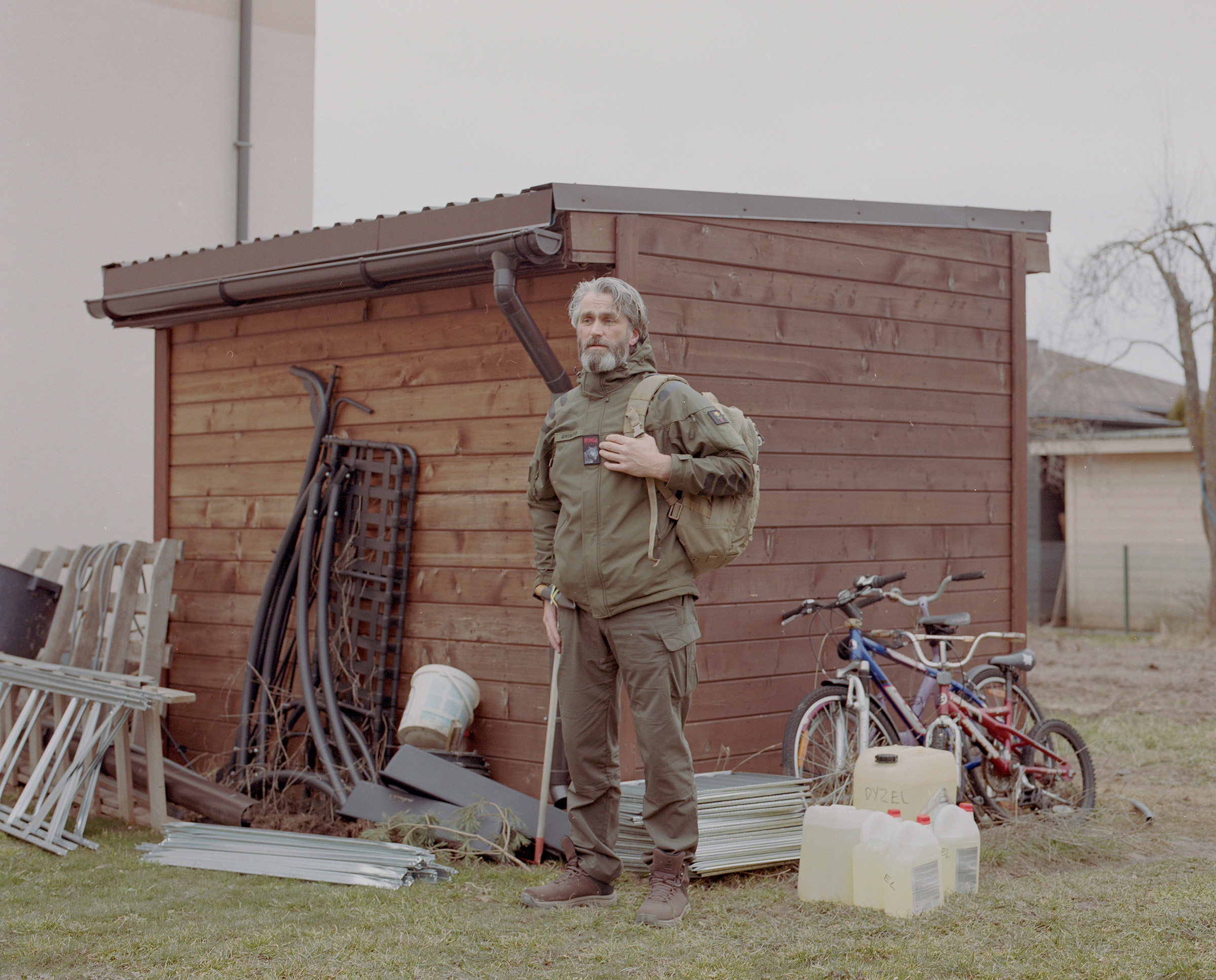
But his time spent working at NATO headquarters in Heidelberg, coupled with his keen knowledge of history, have left Mauricas no doubt that Russia and Putin have broader goals—and given him another reason to support the Ukrainian cause. “We hope that with the help of the international community, the Ukrainians will stop him, so we will not have to fight him on our land. We go and fight in Ukraine, because we don’t want the buildings here where our kids live to be destroyed by Russian rockets.”
On Friday morning, Mauricas’ apartment outside Kaunas, which has become Luksu Vyrei’s staging area, was a hive of activity. Outside, a steady stream of donations—plastic jugs of petrol, cases of ready-to-eat meals, baby food to be handed out to refugees with infants—were loaded into a jeep that had also been donated. Inside, some of the 20 men the group will be sending to Ukraine ate poppyseed cake and tried on their bulletproof vests.
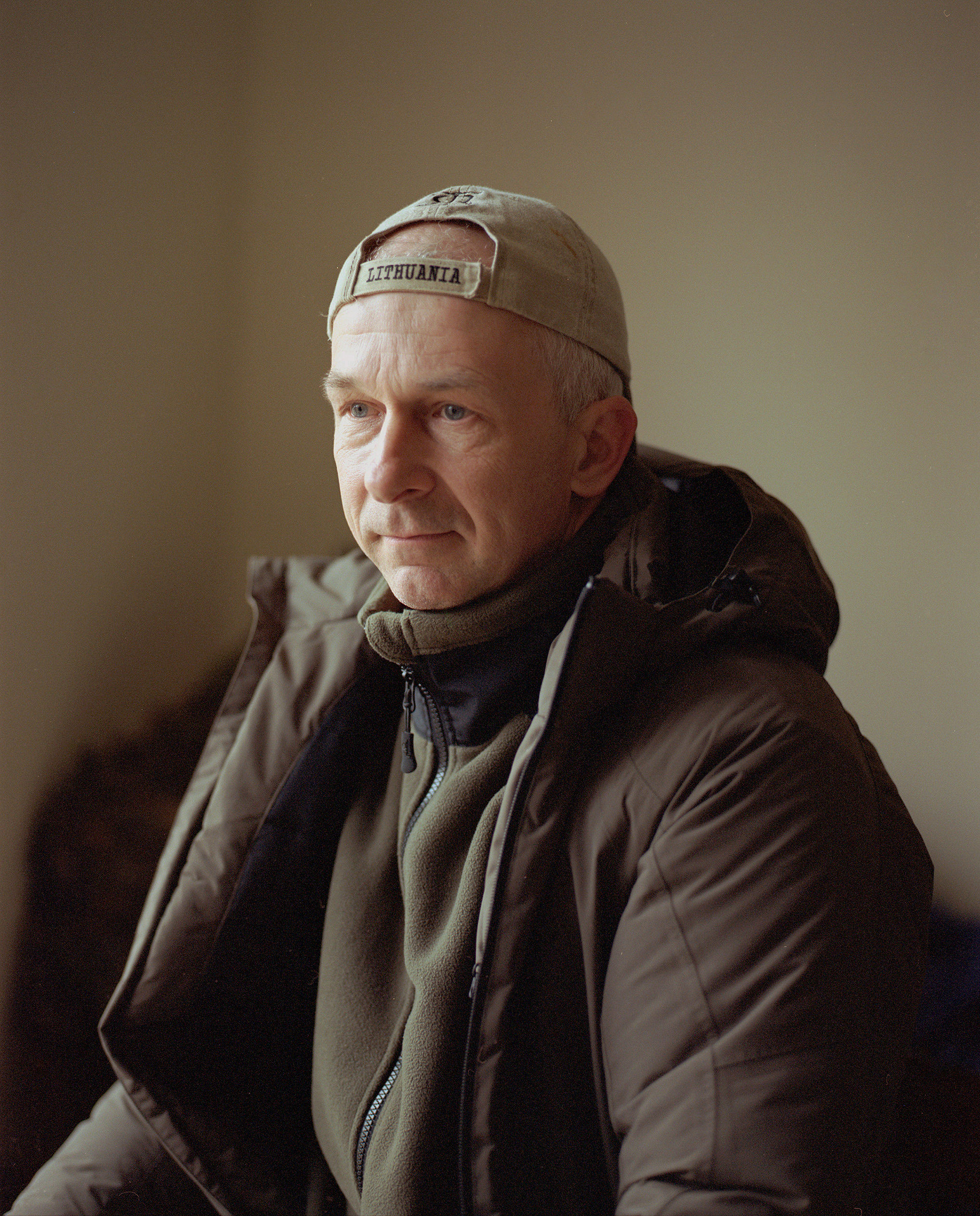
Each one had a different impulse for volunteering. Haroldas Korzonas said that at 52, and with his children grown, he felt obliged to go because he had less to lose than a younger man. Vitalijus (who preferred not to give his last name), 43, had been to Ukraine multiple times since the Crimea invasion of 2014, and confessed with a gentleness belied by a tough-looking exterior that the situation there “hurt his heart.” And 22-year-old Mindaugus Jurkus, who has never seen combat, said that he was motivated in part by a close family friend whom he had admired for his steadfast service to the country. “Now,” he said, “it’s my time to begin to help others.”
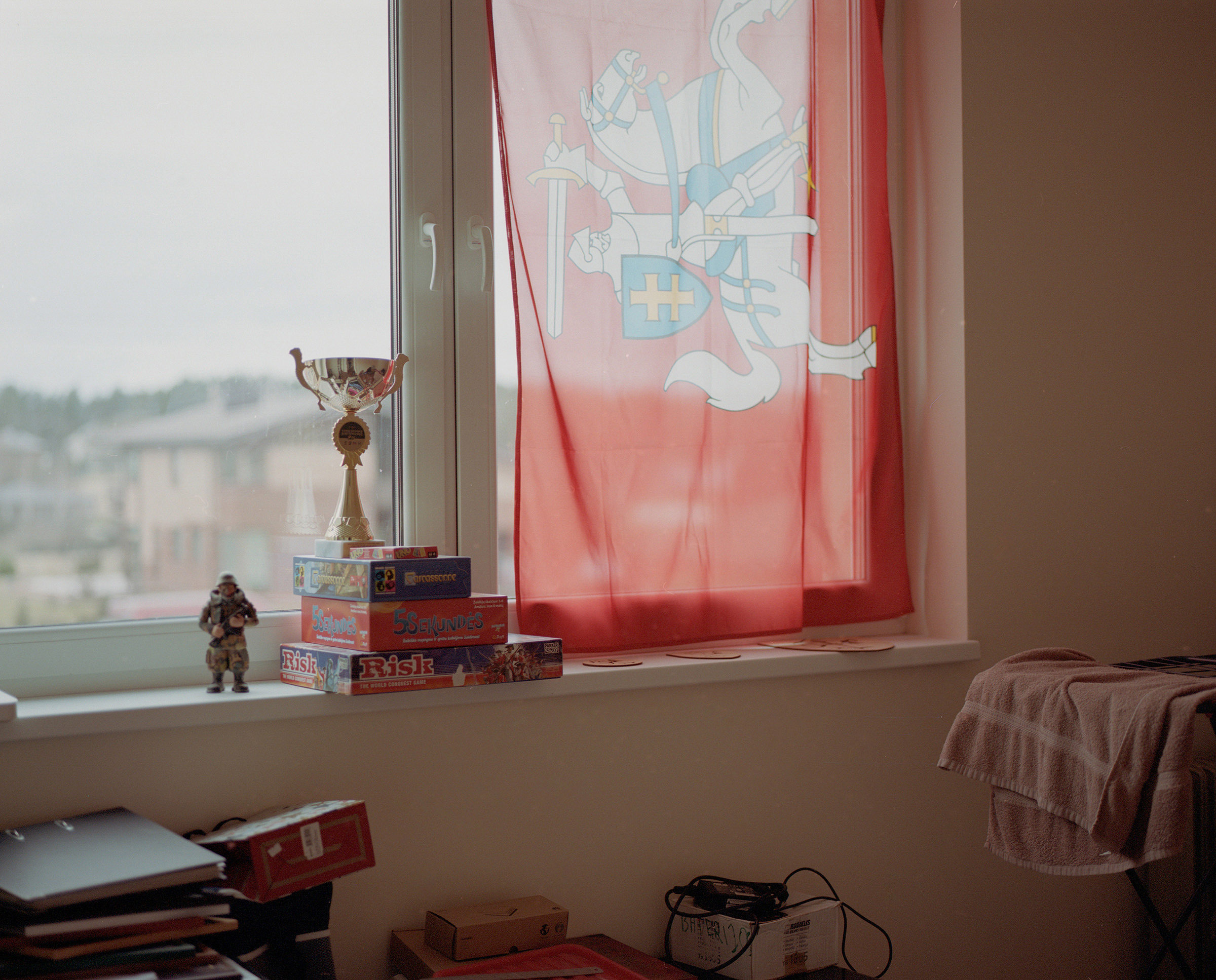
But all of them also mentioned their conviction that if Ukraine fell, Lithuania might well be next. It was a sentiment shared by Povilas Limontas. When he first told his friends that he was enlisting, they “called [him] an idiot five times a day,” he says. But as an orphan without close relatives or a partner, he felt it was his moral responsibility.
After getting his instructions from the embassy, Limontas headed back to Kaunas to work a shift at the bar and tell his employers he would be leaving for the front. They themselves have been active in supporting Ukraine—in fact, they bought a bus and filled it with baby food and diapers to be delivered to the displaced—and were supportive of his decision. “I don’t have any friends who haven’t joined or sacrificed something for the cause,” Limontas says. “We all understand that is the fight we have to win once, because if not, the enemy will fight again and again and again. And then, who will be next?”
More Must-Reads from TIME
- Why Trump’s Message Worked on Latino Men
- What Trump’s Win Could Mean for Housing
- The 100 Must-Read Books of 2024
- Sleep Doctors Share the 1 Tip That’s Changed Their Lives
- Column: Let’s Bring Back Romance
- What It’s Like to Have Long COVID As a Kid
- FX’s Say Nothing Is the Must-Watch Political Thriller of 2024
- Merle Bombardieri Is Helping People Make the Baby Decision
Contact us at letters@time.com
